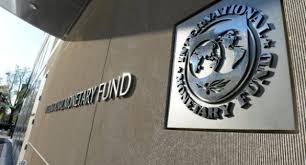The International Monetary Fund (IMF) has raised serious concerns over Nigeria’s economic outlook for 2025, warning that the country may face a deeper financial crisis if it does not urgently revise its budget assumptions and fiscal policies. In its latest Article IV consultation report released on Wednesday, the IMF projected that Nigeria’s fiscal deficit could rise to 4.7 percent of Gross Domestic Product (GDP) in 2025, far above the government’s initial target.
The report highlighted that Nigeria’s current fiscal plan, which was based on hopeful projections for oil revenues, is now under threat due to a combination of falling global oil prices, lower-than-expected production levels, and persistent challenges in executing capital projects. The IMF advised Nigerian authorities to act quickly by adjusting the 2025 budget to reflect the economic reality, especially in light of the risks to oil earnings and rising government debt.
According to the IMF, full-year savings from fuel subsidy removal are estimated to be around 2 percent of GDP. However, the report warned that if these savings are not secured from the second half of 2025, and if tax reforms currently under discussion fail to produce substantial revenue, the government may have to cut spending. The IMF suggested adjusting recurrent expenditure, instead of development spending, to preserve investment in growth-driving sectors.
The IMF further stated that the Nigerian government needs to revise the budget to reflect the decline in oil prices since April. It also noted that the execution of capital projects in previous years has been poor, raising doubts over Nigeria’s ability to meet the capital expenditure targets stated in the 2025 budget.
In response, the Nigerian government said it is already working to revise the budget. The authorities assured that they will align the budget with lower oil price expectations, while also working to boost oil production and improve revenue collection. However, the IMF stressed that without a revised fiscal plan and clear budget targets, it will be difficult to determine the country’s financial position and borrowing needs for the year.
The IMF recommended that Nigeria maintain a neutral fiscal policy stance in 2025 to help preserve macroeconomic stability and protect investments in key sectors like health, education, and infrastructure. The report also encouraged the government to strengthen social protection programmes to cushion vulnerable households from the harsh effects of inflation, poverty, and rising food prices.
It called for greater efforts to diversify Nigeria’s economy away from oil dependency, urging the government to continue its tax reforms to improve revenue generation. These reforms include changes to the value-added tax (VAT) and corporate income tax systems. However, the IMF cautioned that such reforms will take time to yield results and cannot be relied on for immediate fiscal relief in 2025.
Public debt remains a major concern for Nigeria. The IMF report revealed that the country’s public debt rose to 53 percent of GDP in 2024 from 49 percent in 2023. This increase was linked to the widening fiscal deficit and currency depreciation. The IMF advised the government to manage new financing carefully and explore public-private partnerships and other funding sources to reduce pressure on foreign borrowing.
To improve the efficiency of public spending, the IMF urged the government to focus capital expenditure on projects that will deliver long-term economic benefits and job creation. It also called for better data and realistic revenue forecasts in the 2026 budget, saying that a credible fiscal plan would help improve public confidence.
The report did, however, praise Nigeria for some of its recent economic reforms. It acknowledged that inflation fell to 23.7 percent in April 2025 from 31 percent in 2024, thanks to tighter monetary policy by the Central Bank of Nigeria (CBN). The IMF also noted improvements in Nigeria’s foreign exchange market, including the naira’s relative stability, and commended steps taken to enhance financial inclusion and develop the capital market.
The Minister of Finance and Coordinating Minister of the Economy, Wale Edun, responded to the IMF’s findings by reiterating the Federal Government’s commitment to sound economic management. In a statement released by the Director of Information and Public Relations, Mohammed Manga, Edun assured Nigerians that the 2025 budget was being implemented in a way that protects the gains from ongoing reforms while maintaining economic stability.
Edun also thanked the IMF for recognising Nigeria’s progress in fiscal reforms and stated that the government is closely monitoring global oil prices and trade developments to manage associated risks.
The World Bank has also expressed concern over Nigeria’s 2025 federal budget, describing it as too ambitious. During the launch of its latest Nigeria Development Update report in Abuja, the bank warned that the government may have to rely on the Central Bank’s Ways and Means facility to cover revenue shortfalls. President Bola Ahmed Tinubu had signed a record N54.99 trillion budget into law earlier this year, making it the largest in Nigeria’s history.
The budget includes N13.64 trillion for recurrent expenditure, N23.96 trillion for capital projects, N14.32 trillion for debt servicing, and N3.65 trillion for statutory transfers. It assumes a crude oil benchmark of $75 per barrel, oil production at 2.06 million barrels per day, an exchange rate of N1,400 to the dollar, and an inflation target of 15 percent.
Speaking at the World Bank event, the bank’s Lead Economist for Nigeria, Mr. Alex Sienaert, warned that the assumptions in the budget were optimistic. He said it would be difficult for Nigeria to meet the revenue targets, even with improved revenue collection in 2024.
But Minister of Budget and Economic Planning, Senator Abubakar Atiku Bagudu, disagreed. He argued that the budget targets are modest and aligned with Nigeria’s economic capacity. He said, “Even if oil prices average $73 per barrel due to our premium grades, it is still not excessive. Budgets must be aspirational.”
As Nigeria faces these economic pressures, both international financial institutions and the federal government agree that more reforms are needed to stabilise the country’s finances, reduce poverty, and support long-term growth.
